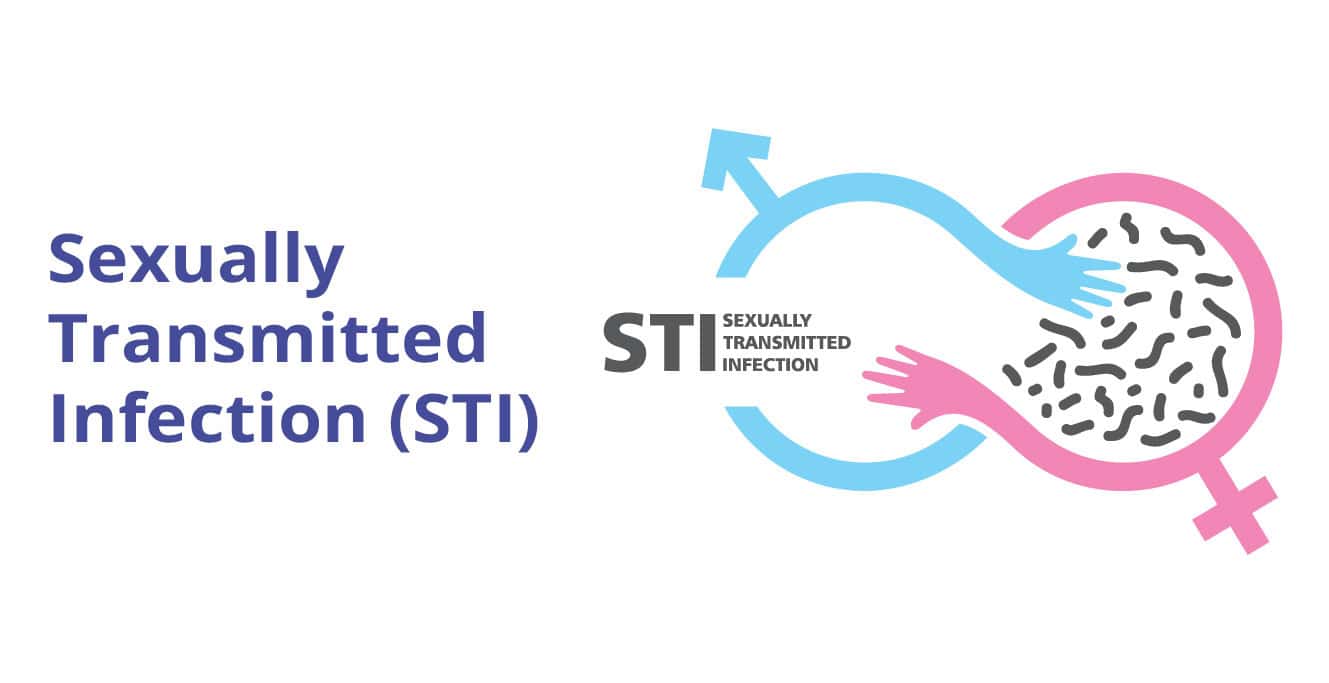HIV Test Cost in India
 ₹750
₹750 ₹700
₹700 ₹800
₹800Book an Appointment
Cost of HIV Test in India
Human immunodeficiency virus also known as HIV is a virus that attacks the immune system of the body and makes the person vulnerable to multiple infections. If not treated, HIV can lead to AIDS. Though there is no permanent cure for HIV, timely treatment can significantly drop the viral load and the person can lead a normal life. Wondering how HIV testing can safeguard your health? Discover everything you need to know about testing, from costs to preventive care, to take control of your health.
HIV Testing Costs
The timely diagnosis of HIV is an essential step in treating and managing it effectively. The cost of HIV tests in India varies depending on the type of test, location and testing facility. The average price of an HIV test in India ranges from ₹700 to ₹800. At Birla Fertility & IVF, we provide you with the best quality diagnostics at a reasonable cost.
Factors Affecting HIV Testing Costs in India
There are many factors that affect the total cost of HIV tests in India.
- Type of Test: ELISA tests are cheaper than advanced ones such as PCR tests.
- Location: The expenses could differ between urban and rural areas. The labs in cities may charge higher than those in rural areas due to high operational costs.
- Facility Type: Labs with advanced equipment may charge higher.
Types of HIV Tests
HIV testing methods are designed to detect the virus, its components or the body’s immune response to the infection. Following are some of the popular tests that are done to check for HIV strains.
1. Nucleic Acid Test (NAT)
- The NAT test helps detect HIV RNA which is the genetic material of the virus.
- The accuracy of this test is very high and can identify HIV within 10–33 days of exposure.
- Often used for early detection or high-risk cases.
2. Antigen/Antibody Test
- Detects HIV antigens (like p24 protein) and antibodies produced by the immune system.
- The antigen test can detect infection as early as 18–45 days post-exposure.
- It is available as laboratory tests or the person can buy rapid diagnostic kits to check at home also.
3. Antibody Test
- The antibody test identifies HIV-specific antibodies in blood or saliva.
- It takes longer to detect (23–90 days after exposure) but is easily and widely available.
- Another advantage is that it can be done at home using self-test kits.
4. Blood Tests
- Includes various methods like ELISA and Western Blot to detect HIV in blood samples.
- Blood tests are usually the standard tests for confirmation of the problem.
Comparison of Different HIV tests
Let’s do a detailed comparison of all the above-mentioned tests to get a better overview. Each test has its own advantage and helps in the detection of the virus in the body. Your healthcare provider will suggest you the best one as per your condition.
| Test Type | What It Detects | Estimated Detection Window | Accuracy | Usage |
| NAT | HIV RNA | 10–33 days | Highly accurate | Early detection/high-risk |
| Antigen/Antibody Test | HIV antigens (p24), antibodies | 18–45 days | Very accurate | Commonly used in labs/clinics |
| Antibody Test | HIV antibodies | 23–90 days | Accurate for late-stage | Rapid tests/home kits |
| Blood Tests | HIV antibodies or virus components | Varies | Highly accurate | Standard diagnostic tests |
Why Take an HIV Test?
HIV testing is vital for the following reasons:
| Reason for Testing | Explanation | Benefits |
| Early Detection and Treatment | Identifies HIV in its initial stages when the viral load is low. |
|
| Protecting Loved Ones | Reduces the risk of transmitting the virus to partners, family, or others. |
|
| Ensuring Maternal and Child Health | Prevents mother-to-child transmission during pregnancy, childbirth or breastfeeding. |
|
| Improved Quality of Life |
|
|
Who Should Consider HIV Testing?
| Category | Description | Recommendation |
| Individuals Engaging in Unprotected Sexual Activity | Persons who frequently engage in sexual activity without taking protective measures are at high risk. | Regular HIV testing is a preventive step to detect any potential infection early and to avoid further transmission. |
| Pregnant Women | Pregnant women even if they are not at risk. This is to rule out the transmission of infection from mother to child during pregnancy, childbirth or while breastfeeding. | HIV testing is recommended for all pregnant women to ensure timely interventions that can significantly reduce the risk of transmission to the baby. This is a preventive step to ensure a healthy pregnancy. |
| People Sharing Needles or Syringes | Individuals who inject drugs and share needles, syringes or other drug paraphernalia, increase the risk of HIV transmission | Regular HIV testing is crucial for early detection and to facilitate access to treatment and harm reduction services. |
| People with Early Symptoms | Experiencing the following symptoms may indicate an acute HIV infection.
|
Immediate HIV testing is recommended to determine the exact cause of symptoms and to initiate early treatment if necessary. |
| Individuals with Multiple Sexual Partners | Persons who have multiple sexual partners are likely to have a high risk of exposure to HIV. | Regular HIV testing is advised to monitor health status and prevent potential transmission. |
| Healthcare Workers Exposed to Blood | Medical professionals may get exposed to the blood or bodily fluids of the affected person by means of needlesticks etc. | HIV testing following potential exposure is essential to ensure early detection and treatment. |
| Individuals Diagnosed with Other STIs | Persons diagnosed with other sexually transmitted infections like chlamydia, syphilis etc. are at high risk of exposure to HIV. | HIV testing is recommended to rule out its presence and provide comprehensive sexual health care to the person. |
HIV testing is therefore important to monitor sexual health in individuals having a high risk of exposure to HIV. This helps in the prevention of the disease. If detected early, it helps enhance the quality of life of those affected and prevent the transmission to others. One should seek the advice of a healthcare provider, to establish the right frequency of testing based on one’s risk factors.
Early Symptoms of HIV and Benefits of Early Testing
Symptoms of HIVRecognising early symptoms of HIV is crucial for prompt testing and treatment. Following are some of the common early signs or symptoms of HIV.
- Fever: Often low-grade but persistent, it may occur with chills and night sweats.
- Weight Loss: Unexplained and sudden weight loss is a potential indicator.
- Fatigue: Persistent tiredness, even after adequate rest, is a common early symptom.
- Swollen Lymph Nodes: Painful or enlarged lymph nodes, especially in the neck, armpits, or groin.
- Rash: A skin rash or lesions, which may appear as reddish, itchy patches.
- Sore Throat: Difficulty swallowing or a constant feeling of a sore throat.
- Headache: Persistent or recurrent headaches, sometimes with dizziness.
- Muscle and Joint Pain: Inflammation caused in the body during infection can lead to body aches and stiffness.
Benefits of Early Testing
- Timely Treatment Initiation
- Early detection allows the initiation of antiretroviral therapy (ART), which reduces viral load and prevents disease progression.
- ART improves immune function, enabling the body to fight infections.
- Reduced Risk of Complications
- Helps prevent HIV from advancing to AIDS.
- Reduces the likelihood of opportunistic infections like tuberculosis or pneumonia.
- Improved Health Outcomes
- Increases life expectancy and quality of life for individuals living with HIV.
- Minimises the risk of transmitting the virus to others through effective viral suppression.
Preparation for HIV Testing
To ensure accurate results:
- Avoid eating for 4-6 hours before the test.
- Discuss any ongoing medications with your doctor.
- Be mentally prepared for the results and follow-up steps.
Steps Involved in HIV Testing
Step 1- Blood sample collection or oral swab.Step 2- Laboratory analysis (ELISA or PCR).Step 3- Results interpretation by a healthcare provider.
Interpreting Results
- Normal: No antibodies detected.
- Abnormal: Presence of antibodies indicating HIV infection.
Who is at High Risk of HIV?
- Individuals with multiple sexual partners.
- People sharing needles or syringes.
- Healthcare workers exposed to bloodborne pathogens.
Preventive Measures for HIV
| Preventive Measure | Description |
| Practice Safe Sex | – Using condoms consistently during sexual activities. – Reducing the number of sexual partners. – PrEP (Pre-Exposure Prophylaxis) for high-risk individuals. – Regular STI screenings. |
| Regular HIV Testing | – Detects infection early for timely treatment. – Reduces risk of transmission. – High-risk individuals should be tested every 3-6 months. |
| PEP(Post-Exposure Prophylaxis) | – Antiretroviral medication to reduce infection risk after possible exposure. – Must be taken within 72 hours. |
| Mother-to-Child Prevention | – Routine HIV screening during pregnancy. – Use antiretroviral treatment to prevent transmission |
| Educate and Raise Awareness | – Spreading accurate information about HIV transmission and prevention. – Reducing stigma to promote safer practices. |
| Hygiene Practices | – Avoid direct contact with blood or bodily fluids. – Use gloves for wound care. |
Can HIV Be Cured If Detected Early?
While there is no definitive cure for HIV, early detection allows for effective management through antiretroviral therapy (ART). This reduces the viral load and helps maintain a healthy immune system.
Remember this formula- Detect, Act, Overcome. Detect the issue, act promptly, and overcome the challenges!
Sometimes, we only need compassion, no judgements…
We understand that HIV is a serious condition, impacting not only the individual living with it but also their loved ones. The journey can be challenging and overwhelming, but it is important to remember—this is not the end. Awareness is the first step toward prevention and if diagnosed, timely treatment can make all the difference. With the right care and support, individuals can lead fulfilling and meaningful lives.
To avail of an HIV test in India and understand about different HIV tests, consult the best healthcare provider. At Birla Fertility & IVF, we are committed to providing the best-in-class services to our patients in terms of both quality and affordability. Our doctors understand every individual’s needs, ensuring personalised care and the best possible treatment.
Early testing saves lives and ensures better health outcomes. Book your test now.

 Our Centers
Our Centers


